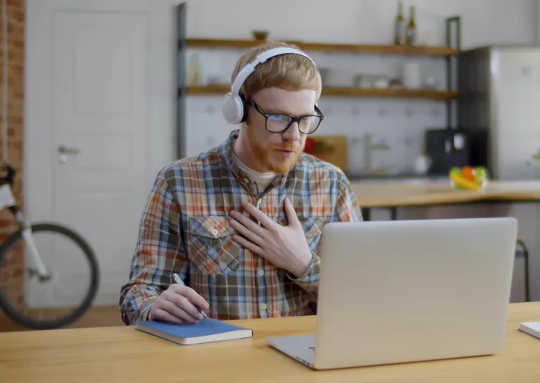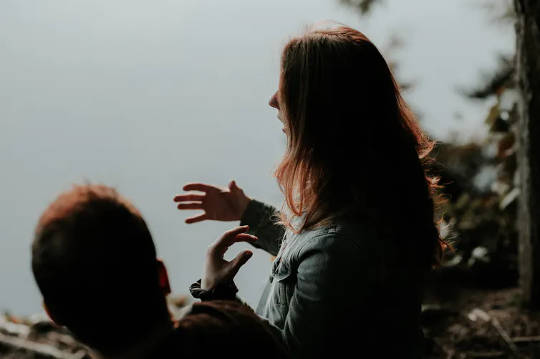
Mind-reading sounds like science fiction. But the term, also referred to as “mentalising”, is a psychological concept used to describe the process of understanding what other people are thinking.

Millions of isolated people have found comfort by chatting with an AI bot. Therapeutic bots have improved users’ mental health for decades. Now, psychiatrists are studying how these AI companions can improve mental wellness during the pandemic and beyond.

Only those who have lived through these experiences can fully feel the pain and humiliation associated with certain words such as the n-word.

Films and TV shows can be great tools to help you become a more competent speaker of another language. By captivating your attention and arousing your curiosity, these formats can instil a positive attitude towards learning.

Workers who communicate with their colleagues mainly through videoconferencing are far less effective at building relationships than when the communication is done face to face

Researchers have created a way to look into the brains of two people simultaneously while they’re talking. What they found will not surprise anyone who has found themselves arguing about politics or social issues.

Honesty is a skill that can be practiced and learned. I feel a deep sadness when I hear people tell me how much they have been hurt in their dating relationships and how this has caused them to approach each new relationship with fear or to give up on relationships altogether.
- By Ajay Heble

There is no doubt that we live in challenging times. But challenges can also lead to opportunities and lessons about how we might live our lives differently.

The way we communicate quickly pivoted to Zoom meetings, remote learning and messaging on social media. And in the absence of face-to-face interactions, people quickly became more reliant on emojis to help express their thoughts and feelings to an audience they can no longer see in person.

Georgette Heyer kept only one fan letter. It was from a Romanian political prisoner who had raised her cell-mates’ spirits over a 12-year incarceration by retelling the story of Heyer’s Friday’s Child.

We are now a society at a distance. But the label used to describe these measures – “social distancing” – is a misnomer. While we must be physically distant, it’s crucial we maintain, or even increase, social contact with others during this unprecedented time.
- By Tom Buchanan

When we come across false information on social media, it is only natural to feel the need to call it out or argue with it.

Well it’s official. Across North America and most of Western Europe, the Christmas holidays are going to look very different this year.

In Lewis Carroll’s Victorian classic Through the Looking-Glass, Alice steps through a mirror into a world that is a reflection of the one she already exists in. This fictional account of a familiar yet topsy-turvy reality resonates with our lived experiences during the pandemic, where we...

Many parents and students are engaged in a daily routine of speaking to people via a camera on a computer, tablet or phone during COVID-19 restrictions. This often means finding a quiet place in order to ask a question, provide an answer or share an opinion with a virtual audience.
- By Vinh To

Young children often write as they speak. But the way we speak and the way we write isn’t quite the same. When we speak, we often use many...

Imagine you have to say an unfamiliar name and are afraid to say it wrong. What do you do? Do you try to pronounce it even at the risk of getting it wrong or do you avoid the name (and perhaps the person) altogether?

Depending on your culture, you are probably used to greeting someone with a handshake, hug or nose bump. Well, not any more.
- By Anna Filipi

There’s been a lot of talk lately. In briefings, speeches and video meetings. With the holidays coming, there will be celebrations and toasts given. These are opportunities to attend to talk. In talk, it’s not just words that create meaning.

Marcus Aurelius was no stranger to pandemics. For 16 years of his reign as Roman Emperor (161-180 CE), the empire was ravaged by the Antonine plague, which took five million lives. It was during this period that the philosopher king penned a series of “notes to himself”.

As the COVID-19 pandemic has swept the world, politicians, medical experts and epidemiologists have taught us about flattening curves, contact tracing, R0 and growth factors. At the same time, we are facing an “infodemic” – an overload of information, in which fact is hard to separate from fiction.

Across Canada, COVID-19 infection rates are climbing amid the coronavirus’s second wave. Since a short flattening of the curve in the summer, transmission has continued to rise, particularly among young people

After a fairly relaxed summer, more and more places are bringing back tighter restrictions in response to rising COVID-19 cases, with some even returning to full or near-full lockdowns.















